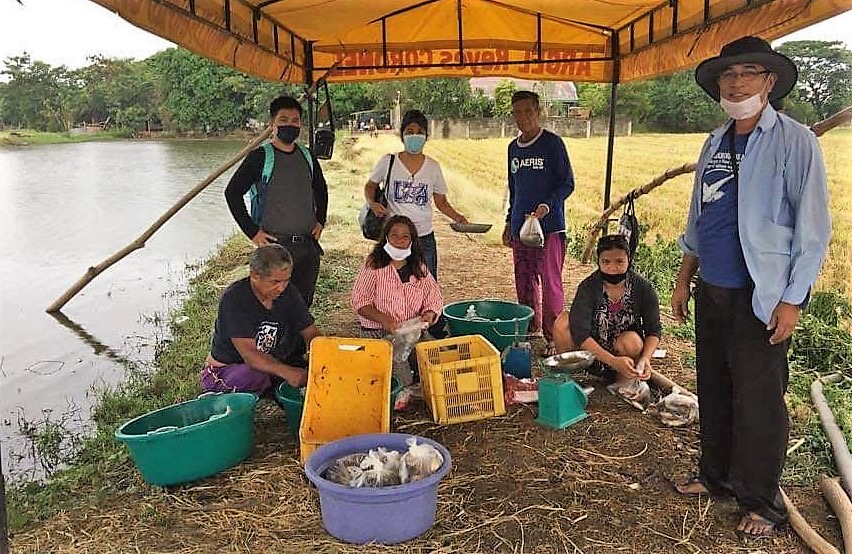Agrarian reform beneficiaries operate their own store under DSWD-DAR CLAAP. Photo by Armand Galang
CABANATUAN CITY — An economic intervention rising out of the partnership of two government agencies has shielded farmers’ organizations in Nueva Ecija from the adverse impact of the lockdown caused by the coronavirus disease.
Jocelyn Ramones, provincial agrarian reform officer 1 of the Department of Agrarian Reform–Nueva Ecija, said that the program called Convergence Livelihood Assistance for Agrarian Reform Beneficiaries Project (CLAAP) strengthened the farmers’ economic stance as they reap the fruits of the different businesses they ventured into.
CLAAP, aimed at augmenting the “household income” of agrarian reform beneficiaries (ARBs) was launched by the DAR and the Department of Social Welfare and Development before the end of 2019 and became operational shortly before the Luzon-wide enhanced community quarantine was imposed, according to Ramones.
“ARBs in Nueva Ecija who are members of DAR-assisted ARBOs (agrarian reform beneficiaries organizations) have ventured into 39 livelihood enterprises for the first phase after being clustered into 39 CLAAPs with 1,017 ARBs,” Ramones said, adding that 528 of them were males and 489 were females.

Among these livelihood enterprises, she said, were agricultural input supplies with 25; groceries and general merchandise, nine; tilapia production, three; bakery/mini-bakeshop and animal feeds supply, one each. These came with a total project fund of P15,788,000.
These enterprises are placed in different agrarian reform communities (ARCs) in the province and are being patronized by beneficiaries of the Pantawid Pamilyang Pilipino Program (4Ps), villagers, and farmers.
Ramones noted that under the current condition, merchandise stores selling essentials such as rice, groceries, LPG, and agricultural inputs which farmers themselves need for their households and farms haveturned to be the bestsellers. “Since these essentials are at the ARBs-ARBOs doorsteps, they don’t need to go to other barangays especially because everybody is advised to stay at home due to Covid-19,” she said.

On May 16, a cluster led by Ruel Romila made P39,500 sales from 395 kg of tilapia which it sold for P100 a kilo. The farmers who received logistical support from the DAR-NE and training from the Central Luzon State University- Fisheries and Aquatic Center expect to harvest 15,000 to 16,000 kg of tilapia from their 2,000 sq meter pond.
Irene Subido Dela Cruz of Tabacao, Talavera town, on the other hand, reported that they make an average sale of P10,000 a day from their store despite limited hours of operation due to curfew that is being implemented under ECQ.
“Since these projects started, almost P8 million or P7.8million has been generated as gross sales contributing to Region III’s over-all gross sales of P10-million,” Ramones said. The national CLAAP has reported P32-million gross sales, she added.
Romeo Cordero, DAR-NE chief, is “making sure that the objectives of CLAAP are successfully attained in the province,” Ramones said.
The DAR-DSWD partnership was a brainchild of Usec. Emily Padilla.
DAR regional director Atty. Maria Celestina Tamencouraged all provincial agrarian reform offices in Central Luzon “to implement this CLAAP properly so that the ARBs will benefit from it.





